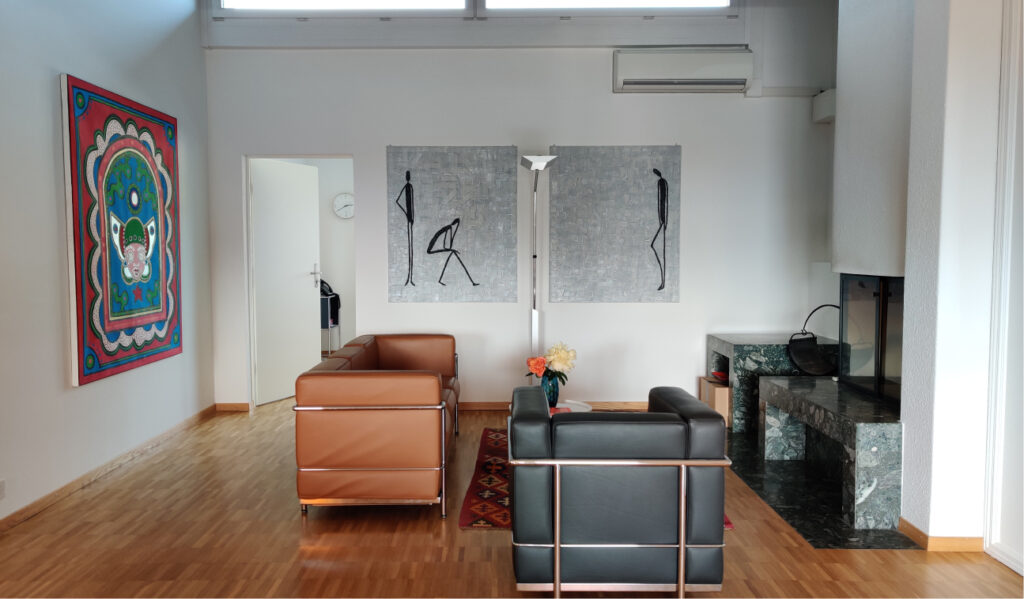In its ruling, the court refuses to unseal seized data carriers and documents belonging to a journalist, thereby strengthening freedom of press. The current decision of the Zurich District Court of 2 July 2025 deals with the unsealing of seized data carriers and documents in the case of Inside Paradeplatz journalist Lukas Hässig, after the journalist correctly filed for sealing on the grounds of protecting his sources. The decision of the Compulsory Measures Court shows the conditions under which a request for unsealing is approved or, as in this case, not approved.
Facts and background of the Hässig case
The focus is on an investigative journalist, editor of the Inside Paradeplatz platform. He is accused of sharing information and data from Bank Julius Bär & Co. AG, which is subject to banking secrecy and/or trade secrets, in his magazine ‘Inside Paradeplatz’. In connection with the resumption of criminal proceedings against the respondent for an offence under Article 47 Banking Act, a search was carried out at his home and place of work. Various items and data carriers were seized. Referring to the protection of journalistic sources, the respondent requested that all seized items be sealed.
The public prosecutor’s office then filed a request for unsealing with the Compulsory Measures Court of the Zurich District Court. The respondent commented on the request for unsealing and requested that it be dismissed.
Note: The judgment shows that the criminal investigation by the public prosecutor’s office had already been suspended twice. In the most recent suspension order, the public prosecutor’s office itself had denied the admissibility of a search on the grounds of source protection, which the court took up in its judgment.
Legal requirements for unsealing
A request for sealing is used to assert permissible confidentiality interests pursuant to Article 248 para. 1 of the Swiss Criminal Procedure Code when searching records. Once the request for sealing has been filed, the criminal authority first seals the seized data carriers and documents. In the unsealing proceedings, the Compulsory Measures Court is then obliged to examine any objections to the admissibility of the search. A general decision must therefore be made as to whether the search is admissible.
A search of records within the meaning of Article 246 ff. Swiss Criminal Procedure Code, i.e. ‘documents, audio, video and other recordings, data carriers and equipment for processing and storing information’, is permissible if:
- The items are subject to a seizure (Art. 246 Swiss Criminal Procedure Code)
- There is sufficient suspicion of a crime (Art. 197 para. 1 lit. b Swiss Criminal Procedure Code)
- It is proportionate with regard to the constitutionally protected sphere of intimacy and privacy (Art. 197 para. 1 lit. c Swiss Criminal Procedure Code)
According to Article 246 of the Swiss Criminal Procedure Code, documents, audio, video and other recordings, data carriers and equipment for processing and storing information may only be searched if there is reason to suspect that information subject to seizure is contained in these items. According to Article 263 para. 1 of the Swiss Criminal Procedure Code, items and assets that are used as evidence (lit. a) are subject to seizure if they are needed to secure procedural costs, fines, penalties and compensation (lit. b), if they are to be returned to the injured party (lit. c), confiscated (lit. d) or used to cover claims for compensation by the state in accordance with Article 71 of the Swiss Criminal Code.
Unlike the court of law, the Compulsory Measures Court does not have to exhaustively weigh up all incriminating and exonerating evidence. What is required is a sufficiently concrete probability that the alleged offence was actually committed. According to the highest court ruling, reasonable suspicion can be equated with the concept of initial suspicion pursuant to Article 309 para. 1 lit. a of the Swiss Criminal Procedure Code.
Compared to pre-trial detention (Art. 224 ff. Swiss Criminal Procedure Code), the unsealing and searching of records appears to be significantly less intrusive. The requirements for reasonable suspicion are therefore less stringent. Reference can be made to substantiated criminal complaints or reports. The grounds for suspicion must be examined on the basis of the results of the investigation to date.
Furthermore, the Compulsory Measures Court must weigh up the interests involved and examine whether the house search and the search of the sealed data are proportionate to the constitutionally protected intimate and private sphere of the respondent.
The owner of the records or objects may request sealing if there are obstacles to seizure in accordance with Article 264 of the Swiss Criminal Procedure Code (Art. 248 Swiss Criminal Procedure Code). These obstacles to seizure also prevent the unsealing of previously sealed records and objects.
When assessing the proportionality of this compulsory measure, the severity of the offences under investigation is also taken into account (Art. 197 para. 1 lit. d Swiss Criminal Procedure Code).
Considerations of the coercive measures court in its ruling of 2 July 2025
No reasonable suspicion
The criminal investigation against the respondent has now been ongoing for six years. The investigation files do not indicate that the suspicion against the respondent has intensified in recent years or at least months. The Compulsory Measures Court finds that no suspicion against the respondent can be established, even to a minimal degree. Sufficient suspicion is denied.
Proportionality and source protection
The public prosecutor’s office argues that the respondent cannot invoke source protection under Art. 28a para. 1 of the Swiss Criminal Code and Art. 172 of the Swiss Criminal Procedure Code and thus a right to refuse to give evidence. The Compulsory Measures Court argues that the respondent acted in the interests of society and fulfilled his duty as an investigative journalist. It considers the priority given to criminal prosecution and possible punishment for a breach of banking secrecy over the legitimate right of the public to be informed about alleged far-reaching violations of the law in the financial sector to be manifestly wrong. According to the Compulsory Measures Court, the interest in prosecution in this case is not sufficiently weighty to outweigh the protection of sources. The proportionality of the search must also be denied.
Finally, the Compulsory Measures Court finds that the conditions for unsealing and searching the seized data carriers and documents are not met.
Significance for the media, lawyers and those affected
The ruling thus rightly emphasises the high hurdles for interference in journalistic work. Source protection enjoys strong protection in Switzerland, as it is enshrined in the Constitution and the ECHR. Finally, criminal proceedings such as the unsealing and searching of records require careful consideration of the interests involved – especially in the case of media professionals.
For affected journalists and media companies, this means that access to confidential data is only permitted in exceptional cases where there are concrete and serious grounds for suspicion of criminal activity.
Our law firm provides advice on criminal procedure law, media law, source protection and the enforcement of personal rights. Please feel free to contact us without obligation if you have any questions about criminal proceedings and the search of records.
FAQ Criminal proceedings and sealing:
- How does the sealing of data carriers or documents occur in criminal proceedings?
Seized data carriers or documents are sealed if the person concerned claims that the contents of the records are subject to special protection, for example due to professional secrecy (e.g. protection of journalistic sources, lawyers, doctors). Sealed data may only be searched after a court decision has been made.
- Under what conditions can a request for unsealing be successful?
To this end, the public prosecutor’s office submits a request for unsealing to the Compulsory Measures Court. Unsealing is possible if there is concrete and sufficient suspicion against the person concerned and the search appears proportionate to their fundamental rights. The Compulsory Measures Court always examines the proportionality and the suspicion.
- What is the right to refuse to give evidence and who can invoke it?
The right to refuse to give evidence allows certain professional groups – e.g. lawyers, journalists, doctors – to refuse to testify and to keep their sources or client data confidential. This protection applies as long as they are not suspected of having committed serious crimes themselves.
The right to refuse to give evidence allows any person to refuse to testify during questioning for their own protection (Art. 169 Swiss Criminal Procedure Code) or to protect personal relationships such as their spouse or close relatives (Art. 168 Swiss Criminal Procedure Code). However, sealing is only protected under Art. 264 of the Swiss Criminal Procedure Code in cases of qualified confidentiality protection, e.g. items and documents from another person’s communications with their lawyer.
- Is the protection of journalists’ sources also guaranteed in court?
Yes, journalists can invoke source protection. Courts and public prosecutors may only seize and unseal their data in exceptional cases – namely when there are clear indications of a criminal offence and public interests, namely in the criminal investigation, outweigh other considerations.
- What can I do if I receive a summons to appear as a witness but wish to refuse to provide information?
You must attend the appointment, but you can exercise your right to refuse to give evidence if you are bound to secrecy as a relative or because of your profession. Inform the authorities of this in good time and seek legal advice if necessary.



